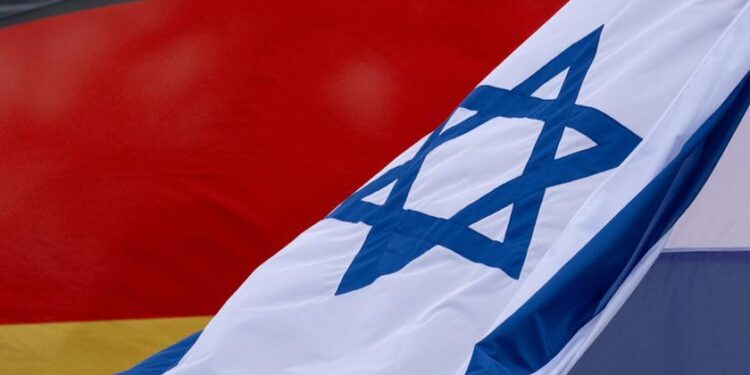Israel’s ambassador to the United Nations has sharply criticized the United Kingdom, accusing it of hypocrisy in its response to the ongoing conflict in Gaza. Speaking at a recent UN session, the Israeli envoy challenged the UK’s stance on the war, highlighting what he described as inconsistencies between the British government’s rhetoric and its actions. The exchange underscores the growing tensions between Israel and some Western countries over the approach to the Gaza conflict, as humanitarian concerns and security issues remain at the forefront of international debate.
Israel’s UN Envoy Challenges UK’s Stance on Gaza Conflict
Israel’s permanent representative to the United Nations sharply criticized the United Kingdom for what he described as a contradictory approach to the ongoing Gaza conflict. Accusing the UK of hypocrisy, he highlighted inconsistencies in British diplomatic rhetoric versus their actions on the international stage. The envoy underscored London’s vocal calls for humanitarian ceasefires, while simultaneously maintaining policies that, according to Israel, undermine efforts to combat terrorism emanating from Gaza. This confrontation reflects deeper tensions within the UN Security Council regarding accountability and peace strategies in the region.
The Israeli envoy outlined several key issues he believes demonstrate the UK’s conflicting positions:
- Selective condemnation of violence, targeting Israel disproportionately
- Support for resolutions perceived to delegitimize Israel’s right to self-defense
- Lack of pressure on Hamas to cease rocket attacks
- Promotion of humanitarian aid that fails to ensure security safeguards
| Country | Public Statements | UN Voting Record | Humanitarian Aid Policy |
|---|---|---|---|
| United Kingdom | Calls for ceasefire, criticizes civilian casualties | Often votes against Israel-favorable resolutions | Supports aid but demands access restrictions |
| Israel | Defends right to self-defense, condemns terrorism | Votes to restrict Hamas activities | Facilitates aid with security measures |
Detailed Analysis of Alleged Diplomatic Double Standards
In a scathing rebuke, Israel’s UN representative highlighted what he described as a glaring inconsistency in the United Kingdom’s approach to international conflicts, particularly concerning the ongoing Gaza war. The envoy underscored that while the UK vocally condemns Israel’s military actions, it has historically exhibited a permissive stance towards other countries’ similar conduct. This selective moral outrage, he argued, undermines diplomatic credibility and fuels a biased narrative within the United Nations. The official pointed to instances where the UK has either muted criticism or provided tacit support for allies engaged in contentious military operations, thereby applying a double standard that unfairly isolates Israel.
To illustrate this, the envoy referenced several cases where the UK’s response appears inconsistent:
- Strong sanctions against nations accused of aggression, contrasted with leniency towards allied states.
- Selective media amplification of civilian casualties depending on geographic or political alliances.
- Unequal application of resolutions and international law enforcement within the UN framework.
| Conflict | UK Response | Criticism Level |
|---|---|---|
| Israel-Gaza | Vocal condemnation | High |
| Other allied conflicts | Muted statements | Low |
| Third-party conflicts | Conditional criticism | Medium |
The envoy concluded that this evident discrepancy hampers balanced diplomacy and urged the UK to reassess its foreign policy stance to promote fairness rather than selective condemnation.
Calls for Consistent International Approach to Middle East Peace Efforts
International stakeholders have renewed their appeal for a unified and constant diplomatic approach to the ongoing Middle East conflict, emphasizing that fragmented policies only further entrench divisions. Observers point to the inconsistent reactions from various nations, particularly regarding humanitarian concerns and ceasefire negotiations, which undermine prospects for lasting peace. Key demands from global voices include:
- Clear, unbiased condemnation of all forms of violence regardless of the perpetrator
- Support for immediate humanitarian aid access to affected civilian populations
- Commitment to a roadmap that prioritizes dialogue and reconciliation over military escalation
- Equal application of international law to hold accountable those responsible for violations
A recent table compiled by independent analysts highlights the disparities in diplomatic rhetoric and action among major UN members:
| Country | Official Stance | Humanitarian Aid Support | Mediation Efforts |
|---|---|---|---|
| UK | Calls for ceasefire but criticized for double standards | Moderate Contribution | Limited Engagement |
| USA | Firm ally of Israel, urges restraint | Significant Funding | Final Thoughts As tensions continue to escalate in Gaza, the sharp exchange between Israel’s UN envoy and the United Kingdom underscores the deep divisions within the international community over the conflict. With accusations of hypocrisy and differing narratives dominating diplomatic discourse, the unfolding situation remains a focal point for global attention and debate. Observers will be closely watching how these competing positions influence future negotiations and efforts toward a resolution. ADVERTISEMENT |
















